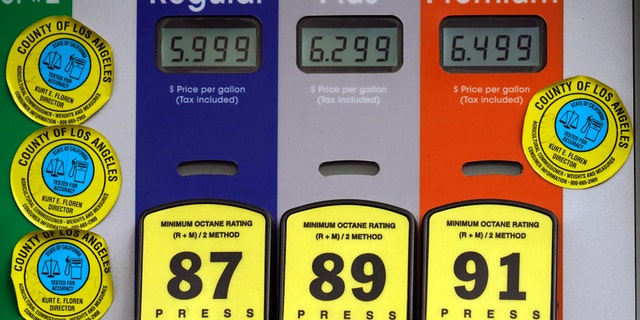Media top headlines November 24
In media news today, a CBS News reporter asks Biden when he will answer reporters’ questions, ‘Experts’ get slammed for cautioning against using the term ‘looting’ to describe California thefts, and false media reporting on Rittenhouse leads to corrections and mockery.
The Washington Post editorial board called out President Biden’s “oil-price two-step” as Americans face steeper prices at the pump going into the Thanksgiving travel weekend.
The Biden administration announced it will release 50 million barrels of oil held in the U.S. Strategic Petroleum Reserve in hopes of putting the breaks on growing gas prices.
NEW YORK TIMES DRAWS ATTENTION TO BIDEN’S ‘LOW-KEY MEDIA STRATEGY,’ FUELING ‘CONCERN’ AMONG ALLIES
Of the 50 million barrels, 32 million will be released but eventually returned to the Strategic Petroleum Reserve in the next few years, the White House said. The remaining 18 million barrels are part of a sale that Congress has already authorized; the White House said it was accelerating the release of that sale.
“The President stands ready to take additional action, if needed, and is prepared to use his full authorities working in coordination with the rest of the world to maintain adequate supply as we exit the pandemic,” the White House said in a statement Tuesday.
President Joe Biden delivers remarks on the economy in the South Court Auditorium on the White House campus, Tuesday, Nov. 23, 2021, in Washington. (AP Photo/Evan Vucci)
(AP Photo/Evan Vucci)
However, the editorial board at the Washington Post is not convinced that the president’s actions will have any impact.
“President Biden has now completed the two-step ritual that presidents perform to deflect voter anger over rising gasoline prices,” the editorial board began Tuesday. “The first step is ordering an investigation into gas price gouging, which Mr. Biden did last week. The second is releasing oil from the U.S. Strategic Petroleum Reserve, which Mr. Biden did Tuesday. These moves accomplish one thing: making it appear that the president is doing something about gas prices.”
CNN CREDITS BIDEN FOR FALLING OIL PRICES AFTER CLAIMING HE ‘CAN’T DO MUCH TO EASE’ PAIN AT THE PUMP
After swiping Biden’s failed effort to pressure the Organization of the Petroleum Exporting Countries (OPEC) to speed up production, the Post dismissed his latest move, pointing out that the 50 million barrels of oil equate to “about 2½ days of national consumption.”

High gas prices are posted at a full service gas station in Beverly Hills, Calif., Sunday, Nov. 7, 2021. The average U.S. price of regular-grade gasoline jumped by 5 cents over the past two weeks, to $3.49 per gallon. The price at the pump is $1.30 higher than a year ago. Industry analyst Trilby Lundberg of the Lundberg Survey said Sunday the rise comes as the cost of crude oil and ethanol surges. Nationwide, the highest average price for regular-grade gas is in the San Francisco Bay Area, at $4.77 per gallon. The lowest average is in Houston, at $2.98 per gallon. (AP Photo/Damian Dovarganes)
( (AP Photo/Damian Dovarganes))
“Long-term, there are only two ways to minimize the punishing effects of oil price volatility: increasing domestic oil production and decreasing domestic oil consumption. Increasing U.S. oil production would bypass OPEC and limit the geopolitical clout of predatory nations such as Russia. Yet this makes sense only as a transitional policy,” the board wrote. “Over time, the country must cut its dependence by encouraging more fuel-efficient and electric cars, investing in public transit and better planning communities. Hand-in-hand with boosted domestic oil production should come a higher gas tax, the proceeds of which could be rebated back to consumers to make all but the biggest gas-guzzlers whole. A steadily increasing levy would raise prices slowly and predictably, giving the economy more time to adjust, and it would keep more fuel dollars in the United States, all while shifting consumption patterns away from a toxic addiction to the fossil fuels that are warming the climate.”
CLICK HERE TO GET THE FOX NEWS APP
“Republicans stress domestic oil production. Democrats emphasize weaning off carbon-intensive fuels. Both have a point. If, years down the line, presidents are still performing the oil-price two-step, it will represent a massive national failure,” the Post added.
Fox News’ Paul Conner and Brooke Singman contributed to this report.